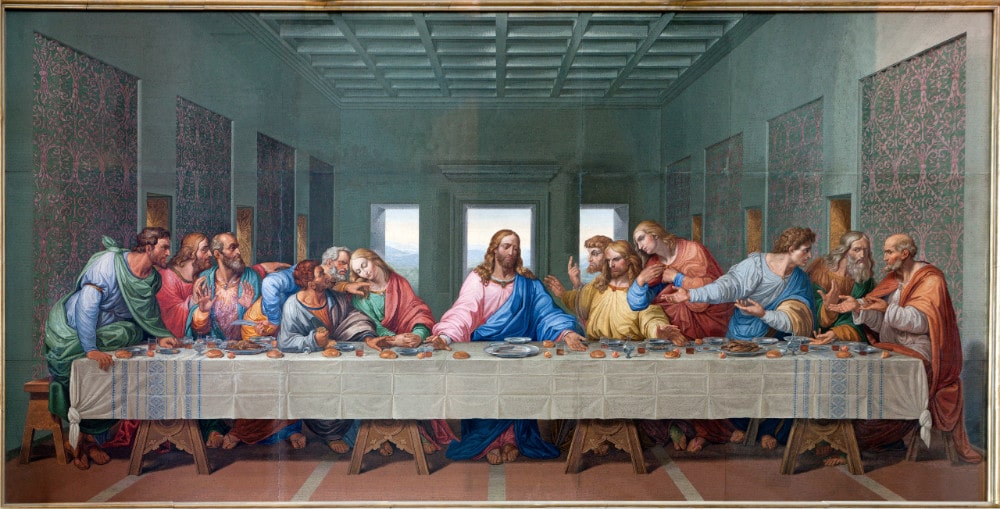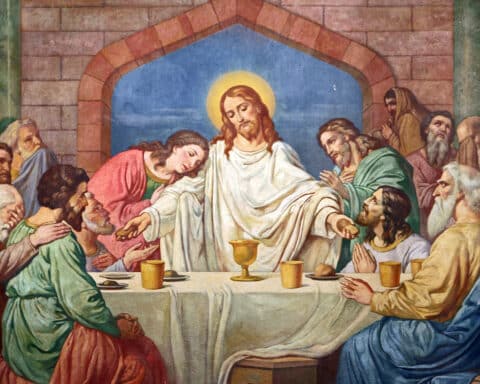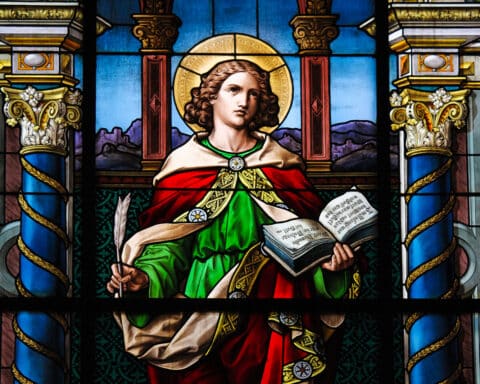They’re quite a trio, Peter, Thomas and Judas. Three of the original apostles who are similar to each other in some ways and unique in others.
Their lives are so different from ours, some 2,000 years later. But their actions, their choices, are not so different from ours here and now. That’s why it’s good to realize, and remember, there’s a little of each of them in each of us. And Lent, most definitely, is a good time to consider this.
Peter, the rock that crumbled

The times we lead others to Jesus by how we lead our lives. The times the Father, Son or Holy Spirit offers us a new vocation, a change in our lives, a surprising fork in the road or challenging invitation as the years roll by. And we, in one way or another, “leave our nets” and follow.
But like us, Peter wasn’t perfect. Peter needed some educating, some correcting, some having to deal with messing up big time. We know he did that. Yes, he was the “rock” chosen to lead the very early Church but he was also ….
The cocky (if you’ll pardon the pun) apostle who was sure beyond sure he would never — never! — deny Jesus. This at the Last Supper. Then, only hours later, he did just that, three times. We’re all familiar with the details. Perhaps most of us learn them as a child or teen. So, too, with the Risen Christ’s three times asking Peter face to face: “Do you love me?” (Jn 21 15-17).
What do those two events have to do with us? At one time or another, to one degree or another, they are us. More than three times. To use a biblical way of expressing that, “seventy times seven times” they’re us.
No, we don’t tell a group crowded into a courtyard (or a mall food court) that we don’t know this Jesus person. It’s not like that. What we do is sin. Sometimes privately, sometimes more publically. Each time, through our actions, we deny a relationship with Christ.
And when what we have done hits us, again like Peter, we, too (in one form or another), “go out and weep bitterly” (Mt 26:75).
But Peter’s story doesn’t end there, and ours doesn’t have to. Jesus never denies us, never stops loving us.
The cycle then, the cycle now, is this: Sin, repentance, forgiveness, mercy, grace. A divine “mulligan,” to use a golfing term that means a do-over. A start-over. God knows the Peter in us needs that sometimes. Too often.
And God has faith in us that we’ll take the first small step back to him. He gives us the opportunity, through the Sacrament of Reconciliation, to confess our sins and to ask for forgiveness. It’s an action so simple with results so profound. Instituted, designed and offered for the Peter in each of us.
Again and again.
Thomas got a bum rap

You know the details of the “doubting” nickname. He wasn’t there when the resurrected Jesus appeared to the other apostles, and when they later told him, he said (essentially), “I’ll believe it when I see it.” A natural reaction to a supernatural event.
But there’s another Thomas quote that puts him in quite another light. Jesus tells them he’s heading for Jerusalem, and they realize he’s going to die there. All the disciples are silent except for Thomas, who says, “Let us also go to die with him” (Jn 11:16).
That was when, apparently, all the others had their doubts.
How are those reactions inside us? Sometimes we just aren’t sure. We want more information. We want to see it for ourselves. That’s not necessarily a bad thing. It seems safe to say Jesus had us in mind after he appeared to Thomas and said, “Blessed are those who have not seen and yet believe” (Jn 20:29).
We see — we receive — Christ under the appearances of bread and wine, but not as Thomas saw him. Then, it’s our faith that tells us it’s so. And it’s our courage that moves us to use that Eucharistic grace to do what he’s asking us to do.
Judas, coin by coin

And here, in that list of what he did, is where we fit in. Too often.
It seems safe to assume he started small. Step by step. In deeper. Step by step. Little sin by little sin. Until …
The evangelist (and later, artists) didn’t overlook the fact that he controlled the dough. And that he stole from the pot.
If he’s like most of us — and why wouldn’t he be? — it was one coin one time. Tiny harm, tiny foul. Then another. Then two coins taken. So easy. No one knowing. What was the harm, really?
The “slippery slope” is a cliché because, like most clichés, it has its roots in truth. Just as most of us aren’t going to suddenly become super virtuous overnight, so, too, with becoming filled with vice.
Good and evil are built tiny brick by tiny brick. Or, if you prefer, tiny decision, tiny step.
The purse, the treasure, that God has entrusted to us is our lives. And as with Judas and the money pouch, he lets us decide what we’ll do with those coins, how we’ll spend them. One by one.
Peter, Thomas and Judas. Three people, three lives, many, many choices.
Just like us.
Bill Dodds writes from Washington.
| ONE LAST CHANCE FOR JUDAS |
|---|
|
An excerpt from the writings of Cardinal Antonio Bacci (1885-1971). The treacherous Apostle comes forward. He embraces our divine Redeemer, hails Him as his Master and greets Him with a sacrilegious kiss upon the cheek. Jesus neither repulses nor rebukes him but, with a gesture of infinite mercy, He addresses him as a friend. “Friend,” He says, “for what purpose hast thou come?” (Mt 26:50). “Dost thou betray the Son of Man with a kiss?” (Lk 22:48). If only Judas could have heeded this last appeal and begged for forgiveness at Jesus’ feet with tears of repentance! Jesus would certainly have taken him to His heart and returned his kiss with a kiss of pardon and divine friendship. Perhaps, we have also stood at times on the brink of sin and have been aware of a higher appeal to go back! But, have we heeded it? If ever we are in danger again, let us listen to this quiet voice which speaks to our conscience. Let us fall on our knees before Jesus and earnestly implore Him: “Be not silent, Lord, be not far from me!” (Ps 34 [35]:22). Let us ask Him to have pity on our weakness and to come to our assistance. |





